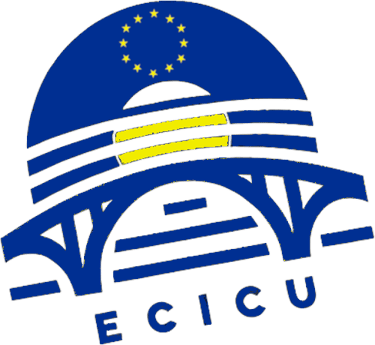Toward an Inclusive Europe: Challenges and Opportunities in 2025
Provides an overview of current challenges to cultural cohesion in Europe, such as migration and polarization, and suggests opportunities based on dialogue and collaboration.
12/21/20244 min read


As 2024 draws to a close, Europe stands at a crossroads. The continent, renowned for its rich cultural diversity and history of resilience, faces challenges that will test its ability to maintain social cohesion in 2025. Migration, political polarization, and tensions stemming from a rapidly changing world dominate the current landscape. Yet, within these challenges lie opportunities to build a more inclusive Europe, where dialogue and collaboration serve as the pillars of a shared future. This article provides an overview of the obstacles ahead and proposes forward-looking, universal pathways, transcending borders.
The Current Challenges: A Snapshot of 2024
In this December of 2024, Europe continues to grapple with the effects of sustained migration that has transformed its cities and communities. Millions of people, fleeing conflicts, economic crises, or climate change, have found refuge on the continent, bringing with them new cultures, languages, and perspectives. While this diversity enriches the social fabric, it has also sparked tensions. In many places, integration has been uneven, with communities struggling to balance preserving their identities with welcoming newcomers. Headlines this year have reflected heated debates over migration policies, resource access, and fears of losing local traditions.
Polarization, another key challenge, has reached alarming levels in 2024. Recent elections across several countries have exposed deep divisions—not just between left and right, but between those advocating for an open Europe and those favoring closed borders. Social media, amplified by algorithms that prioritize divisive content, has widened these rifts, fueling “us versus them” narratives. This fragmentation threatens the cultural cohesion that has historically been a point of European pride, from medieval squares hosting multicultural markets to modern capitals celebrating plurality.
Additionally, external pressures—such as economic uncertainty and energy crises—have complicated the picture. In a year marked by headlines about inflation and budget cuts, the most vulnerable communities, including migrants and minorities, have often borne the brunt, heightening the risk of social exclusion. As we close out 2024, it’s evident that Europe needs a renewed strategy to tackle these challenges in 2025.
Looking to 2025: The Challenges Ahead
Heading into the new year, migration will remain a central issue. Projections suggest that migratory flows will not slow, driven by ongoing conflicts in neighboring regions and climate change displacing entire populations. The challenge for Europe will not only be managing arrivals but ensuring integration is effective and equitable. Disparities in education, employment, and housing between newcomers and local communities could widen if not addressed urgently.
Polarization, meanwhile, may deepen in 2025 if elections and public debates continue amplifying extreme voices. Distrust in European institutions, perceived by some as detached from local realities, could further erode the continent’s unity. Add to this the rise of nationalist movements that, while responding to legitimate concerns about identity, often reject intercultural collaboration as a viable value.
Finally, the impact of global crises will continue to weigh on Europe. The transition to a more sustainable economy, though necessary, could spark tensions if it doesn’t ensure all communities—urban, rural, native, or migrant—benefit equally. Without an inclusive vision, 2025 risks becoming a year of deeper divisions rather than collective progress.
Opportunities for an Inclusive Europe
Despite these challenges, 2025 offers transformative opportunities if Europe embraces dialogue and collaboration as its core strategies. The first pathway is strengthening intercultural meeting spaces. Imagine a 2025 where European cities prioritize community forums, shared festivals, and digital platforms that bring people from diverse backgrounds together to listen, learn, and build collectively. Far from utopian, such initiatives have already shown promise on a small scale in 2024 and could be scaled up to reduce prejudice and foster a shared sense of belonging.
Another opportunity lies in education. In 2025, school systems could adopt curricula that don’t just teach history or science but also prepare young people to be global citizens, emphasizing mutual respect and conflict resolution. This approach, backed by global trends toward intercultural education, could become a driver of cohesion, shaping generations who view diversity as a strength rather than a threat.
Collaboration between governments, businesses, and civil society will also be critical. In 2025, Europe could lead the way with policies that incentivize economic inclusion, such as job training programs for migrants or incentives for companies promoting diverse teams. At the same time, European institutions could renew their commitment to local communities, ensuring decisions reflect the needs of all, from cosmopolitan capitals to the most remote rural areas.
Lastly, technology presents an unprecedented opportunity. Instead of fueling polarization, digital platforms could be redesigned in 2025 to promote constructive dialogue, connecting people from different realities in meaningful conversations. This shift, though ambitious, could counter the divisive narratives that dominated 2024.
A Call to Action for 2025
As we leave 2024 behind, Europe has the chance to redefine its future. The challenges—migration, polarization, inequality—are real but not insurmountable. With a forward-looking approach rooted in dialogue and collaboration, 2025 could be the year the continent takes decisive steps toward inclusivity. This isn’t about erasing differences but finding common ground where everyone can thrive.
The path won’t be easy, but Europe’s history—from its eras of conflict to its moments of unity—teaches us that resilience and creativity are part of its DNA. In this December of 2024, let’s look to 2025 with hope and determination, ready to turn challenges into opportunities and build a Europe that is truly inclusive for all its inhabitants. The coming year isn’t just another chapter—it’s a chance to write a new story of cohesion and shared humanity.
ECICU - European Center for Interreligious and Cultural Understanding
Promoting dialogue and understanding among communities.
ECICU
Empowering Unity Through Cultural Understanding
© 2009. All rights reserved.
+33 624 506 770
